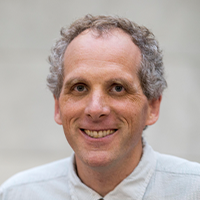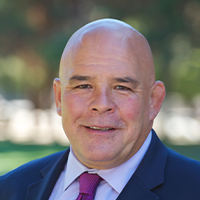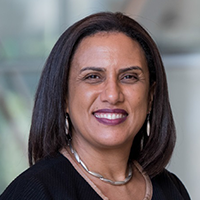Laying the Foundation: Historical and Current Perspectives on Race and Racism in Medicine and Implications for Health Equity
March 24, 8:00 am - 11:30 am
Join us for our opening session with keynote talks and a group discussion that consider the use of race in medicine with respect to its historical context and current applications, including considerations related to the evolving science of genetics and the impact of racism on health outcomes.
Agenda
| 8:00-9:45 am |
Opening Remarks and Keynotes |
| 9:45-9:55 | BREAK |
| 9:55-10:15 | Moderated Discussion with Keynote Speakers |
| 10:15-11:10 |
Moderated Discussion with Responder Panelists |
| 11:10-11:30 | Q&A and Closing Comments |
Keynote Speakers

Dorothy E. Roberts, JD
University of Pennsylvania

David S. Jones, MD, PhD
Harvard University

Esteban Burchard, MD, MPH
UCSF
Dorothy E. Roberts, JD
George A. Weiss University Professor of Law & Sociology
Raymond Pace & Sadie Tanner Mossell Alexander Professor of Civil Rights
Professor of Africana Studies
Director, Penn Program on Race, Science & Society
University of Pennsylvania
Dorothy Roberts is the 14th Penn Integrates Knowledge Professor and George A. Weiss University Professor of Law & Sociology at the University of Pennsylvania, with joint appointments in the Departments of Africana Studies and Sociology and the Law School, where she is the inaugural Raymond Pace and Sadie Tanner Mossell Alexander Professor of Civil Rights. She is also the founding director of the Penn Program on Race, Science, and Society. An internationally recognized scholar, public intellectual, and social justice advocate, she has written and lectured extensively on race, gender, and class inequities in U.S. institutions and has been a leader in transforming public thinking and policy on reproductive freedom, child welfare, and biopolitics. She is the author of Killing the Black Body: Race, Reproduction, and the Meaning of Liberty (Pantheon, 1997/Vintage, 2017), Shattered Bonds: The Color of Child Welfare (Basic Books, 2001), and Fatal Invention: How Science, Politics, and Big Business Re-create Race in the Twenty-First Century (The New Press, 2011), as well as co-editor of six books. She has also published more than 100 articles and essays in books and scholarly journals.
Roberts’s research has been supported by fellowships from American Council of Learned Societies, National Science Foundation, Robert Wood Johnson Foundation, Brocher Foundation, Harvard University Program in Ethics and the Professions, Stanford Center for Comparative Studies in Race and Ethnicity, Northwestern Institute for Policy Research, and the Fulbright Program. She has served on the boards of directors of the American Academy of Political and Social Science, the Black Women’s Health Imperative, and the National Coalition for Child Protection Reform and on the advisory boards of the Center for Genetics and Society, Generations Ahead, and Still She Rises. Recent recognitions of her work include 2019 election as a College of Physicians of Philadelphia Fellow, 2017 election to the National Academy of Medicine, 2016 Society of Family Planning Lifetime Achievement Award, 2015 American Psychiatric Association Solomon Carter Fuller Award, and 2011 election as a Hastings Center Fellow. Her TEDTalk, “The Problem with Race-Based Medicine,” has more than one million views.
David S. Jones, MD, PhD
Harvard College Professor
A. Bernard Ackerman Professor of the Culture of Medicine
Faculty of Arts and Sciences and the Faculty of Medicine
Professor of Epidemiology, Harvard T.H. Chan School of Public Health
Harvard University
Trained in psychiatry and history of science, David Jones is the Ackerman Professor of the Culture of Medicine at Harvard University. His research has focused on the causes and meanings of health inequalities (Rationalizing Epidemics: Meanings and Uses of American Indian Mortality since 1600) and the history of decision making in cardiac therapeutics (Broken Hearts: The Tangled History of Cardiac Care). He is currently at work on four other histories, of the evolution of coronary artery surgery, of heart disease and cardiac therapeutics in India, of the threat of air pollution to health in India, and of the history of air pollution research in the United States. His teaching at Harvard College and Harvard Medical School explores the history of medicine, medical ethics, and social medicine.
Esteban Burchard, MD, MPH
Professor, Bioengineering and Therapeutic Sciences and Medicine at UCSF
Dr. Burchard is a Latino physician-scientist at the University of California, San Francisco (UCSF). He is currently Professor in the Departments of Beioengineering and Therapeutic Sciences and Medicine. He earned his MD from Stanford University School of Medicine, completed residency at the Brigham and Women's Hospital, MA and then a fellowship at the University of California, San Francisco. Dr. Burchard has formal training and expertise in internal medicine, pulmonary and critical care medicine, epidemiology, molecular genetics, genetic and clinical research. He initiated and now directs the largest study of asthma in minority children in the U.S. Dr. Burchard is the Director of the UCSF Asthma Collaboratory, a large interdisciplinary research program focusing on minority children and gene-environment interactions for asthma.
Dr. Burchard’s team was the first to leverage genetic ancestry to identify novel genetic and environmental risk factors for lung disease and poor drug response among minority children with asthma. He is the Principal Investigator of the Asthma Translational Genomics Collaborative (ATGC), the largest whole-genome sequencing study of asthma in the world. Dr. Burchard is also the Principal Investigator of PRIMERO: Puerto Rican Infant Metagenomic and Epidemiologic study of Respiratory Outcomes, the largest birth cohort of minority children and respiratory disease in the U.S. Dr. Burchard has served as an advisor to the Director for the National Institutes of Health All of Us initiative. In August of 2018, Dr. Burchard received the Lifetime Achievement award from the National Medical Foundation and was inducted into San Francisco State University’s Alumni Hall of Fame.
Host and Moderators

Kirsten Bibbins-Domingo, PhD, MD, MAS
Vice Dean for Population Health and Health Equity
Professor and Chair, Epidemiology and Biostatistics
Lee Goldman, MD Endowed Chair and Professor of Medicine at UCSF
Kirsten Bibbins-Domingo, PhD, MD, MAS is the Professor and Chair of the Department of Epidemiology and Biostatistics, and the Lee Goldman, MD Endowed Chair and Professor of Medicine at the University of California, San Francisco. She is the inaugural Vice Dean for Population Health and Health Equity in the UCSF School of Medicine. She co-founded the UCSF Center for Vulnerable Populations at Zuckerberg San Francisco General Hospital that focuses on actionable research to increase health equity and reduce health disparities in at-risk communities. She is one of the Principal Investigators for the UCSF Clinical and Translational Sciences Institute, and she leads the newly launched UCSF COVID Community Public Health Initiative.
Dr. Bibbins-Domingo is a general internist and cardiovascular epidemiologist whose scholarship includes observational epidemiology, pragmatic trials, and simulation modeling to examine clinical and public health approaches to prevention in the US and globally. She previously served on and led the US Preventive Services Task Force from 2010-2017. She is an inducted member of the American Society for Clinical Investigation, the Association of American Physicians, and the National Academy of Medicine.

Catherine Lucey, MD, MACP
Vice Dean for Education
Executive Vice Dean, UCSF School of Medicine
Dr. Catherine R. Lucey is Vice Dean for Education and Executive Vice Dean for the School of Medicine at the University of California, San Francisco (UCSF). She directs the undergraduate, graduate and continuing medical education programs of the School of Medicine and the Office of Medical Education. Dr. Lucey is on the executive management team for the School of Medicine’s Differences Matters Initiative and oversees other strategic initiatives for the medical school and the campus.
Dr. Lucey’s national portfolio of work has included membership on the National Academy of Medicine, the Board of Directors of the Association of American Medical Colleges and the American Board of Medical Specialties. Additionally, she served as Chair of the American Board of Internal Medicine. In these roles, she has worked to influence the direction of academic medicine and the continuum of medical education in ways aligned with UCSF’s approach to education, culture and community.
Dr. Lucey joined UCSF from Ohio State University, where she was Vice Dean for Education for the College of Medicine and Associate Vice President for Health Sciences Education for the Office of Health Sciences. She completed her residency in internal medicine at UCSF, including service as Chief Resident at the UCSF affiliated San Francisco General Hospital.
She earned her medical degree from Northwestern University School of Medicine.
Panelists
|
Happy Araneta, PhD, MPH |

Alicia Fernandez, MD |

Helena Hansen, MD, PhD |

Aleksandar Rajkovic, MD, PhD |

Ruth Shim, MD, MPH |
Maria Rosario (Happy) Araneta, PhD, MPH
Assistant Dean of Diversity and Community Partnerships
Professor, Department of Family Medicine
University of California San Diego School of Medicine
Maria Rosario (Happy) G. Araneta PhD, MPH, is Professor of Epidemiology in the Department of Family Medicine and Assistant Dean of Diversity and Community Partnerships at UC San Diego School of Medicine. Dr. Araneta received the 2014 American Diabetes Association’s Vivian Fonseca Research Award for her research on diabetes among Asians and Pacific Islanders, and the Inaugural Wing Family Lectureship at the Joslin Diabetes Center, Harvard Medical School in 2017. She was appointed to the NIH Advisory Council for the National Institute on Minority Health and Health Disparities (2015 to 2019), and the NIH Council of Councils from 2018 to 2023.
Dr. Araneta’s research interests include health disparities in type 2 diabetes, regional fat distribution, cardiovascular disease, perinatal and reproductive outcomes, and life course exposures. Her work has informed the American Diabetes Association’s revised guidelines for diabetes screening among normal weight Asian Americans. She is the co-Principal Investigator of the Diabetes Prevention Program Outcomes Study (DPPOS) where UC San Diego is one of 26 participating sites. Dr. Araneta is the PI of the UC San Diego Filipino Health Study, a longitudinal study of diabetes, cardiovascular disease, and osteoporosis among Filipino men and women, co-investigator of the Rancho Bernardo Study, where she leads research on health disparities among White, Filipino and Black women (Health Assessment Study of African-American Women). She was a perinatal epidemiologist for the UC San Diego Mother, Child and Adolescent HIV Program, and a co-investigator on maternal and perinatal HIV studies in Mexico. Her prior research included studies on birth defects and adverse reproductive outcomes among Gulf War veterans, HIV transmission through donor artificial insemination, mother-to-child HIV/AIDS transmission, and behavioral intervention studies.
Alicia Fernandez, MD
Professor of Medicine at UCSF
Director of the Latinx Center of Excellence
Alicia Fernandez, M.D., is Professor of Medicine at UCSF and a general internist at Zuckerberg San Francisco General Hospital. She is the founding Director of the UCSF Latinx Center of Excellence, a HRSA and UCSF funded initiative to increase academic diversity. Dr. Fernandez directs the Latinx and Immigrant Health Research Program at the UCSF Center for Vulnerable Populations which generates actionable research to increase health equity and reduce health disparities in at-risk populations in the San Francisco Bay Area, California, and nationally.
Dr. Fernandez' research expertise includes language and literacy barriers in health care, health care equity in chronic disease, and racism in medicine. Most recently, her NIH funded research has focused on improving diabetes care among immigrant populations. Dr. Fernandez has served on the National Academy of Science Roundtable on Health Literacy since 2014. Dr. Fernandez is on the Board of Governors and Chair of the Science Oversight Committee at the Patient Centered Outcomes Research Center. Since 2020, she serves on the Board of Directors of the American Board of Internal Medicine.
At UCSF, Dr. Fernandez is a member of the UCSF Academy of Medical Educators. She received the Arnold P. Gold Foundation Professorship for Humanism in Medicine (2009-2013). Along with colleagues at UCSF, she edits the textbook, Medical Management of Vulnerable and Underserved Patients (Lange,2nd edition).
Helena Hansen, MD, PhD
Helena Hansen, an MD, Ph.D. psychiatrist-anthropologist, is Professor and Chair of Research Theme in Translational Social Science and Health Equity at UCLA’s David Geffen School of Medicine. She has published widely in clinical and social science journals ranging from JAMA and NEJM to Social Science and Medicine and Medical Anthropology, on faith healing of addiction in Puerto Rico, psychiatric disability under welfare reform, opioids and race, ethnic marketing of pharmaceuticals, and structural competency. Her first book, Addicted to Christ: Remaking Men in Puerto Rican Pentecostal Drug Ministries was published by University of California Press in 2018, and her second book, Structural Competency in Medicine and Mental Health: A Case-Based Approach to Treating the Social Determinants of Health, with co-editor Jonathan Metzl, was published by Springer Press in 2019. Her third book, Whiteout: How Racial Capital Changed the Color of Heroin in America, is forthcoming from UC Press. She has received major funding from NIDA, the Mellon Foundation, the Robert Wood Johnson Foundation and Open Society Foundation.
Aleksander Rajkovic, MD, PhD
Medical Director and Chief of the Center for Genetic and Genomic Medicine
Professor, Pathology at UCSF
Dr. Aleksandar Rajkovic serves as the Medical Director and Chief of the Center for Genetic and Genomic Medicine (CGGM) that organizes, coordinates and oversees Clinical Genetics and Genomics Services across the UCSF Health System. He is also Stuart Lindsay Distinguished Professor in Experimental Pathology I, member of the American Society of Clinical Investigator and American Association of Physicians. His research interests lie in basic and translational medical sciences in the area of reproductive genetics. Dr. Rajkovic discovered numerous genes that play critical roles in reproductive tract development, male and female infertility, and uterine tumors. He has been at the forefront of applying cutting edge genomic technologies to reproductive diagnostics. Dr. Rajkovic discovered numerous gonadal specific regulators such as Nobox, Lhx8, Sohlh1, Sohlh2, and Hormad1, genes that are critical regulators of germ cell differentiation, meiosis and gonadal formation. Rajkovic group has applied genomewide approaches to study human infertility and reproductive tumors, and discovered a critical role that mutations in human MCM8, MCM9, and MED12 genes play in human reproductive tract development. He has also been at the forefront of applying cutting edge genomic technologies to reproductive diagnostics. He has made significant contributions to non-invasive diagnosis of submicroscopic deletions, design and utility of dense X chromosome arrays, and utility of genome wide detection of copy number variants in prenatal diagnosis. He has defined many in utero phenotypes with novel genomic variations. His interests lie in delivering non-invasive whole genome diagnostics both prior to and post-implantation. The goal of his research is to expand our understanding of genetic variants that affect women’s health, and the delivery of better diagnostics for improved counseling and future therapies.
Ruth Shim, MD, MPH
Luke & Grace Kim Professor in Cultural Psychiatry
Professor of Clinical Psychiatry in the Department of Psychiatry and Behavioral Sciences
Associate Dean of Diverse and Inclusive Education
University of Calfornia, Davis
Ruth Shim, MD, MPH is the Luke & Grace Kim Professor in Cultural Psychiatry and Professor of Clinical Psychiatry in the Department of Psychiatry and Behavioral Sciences at the University of Calfornia, Davis. She also serves as Associate Dean of Diverse and Inclusive Education at the University of California, Davis School of Medicine.
Dr. Shim received an MPH in health policy from Rollins School of Public Health at Emory University and an MD from Emory University School of Medicine. She is a member of the Board of Trustees of the Robert Wood Johnson Foundation and the American Association for Community Psychiatry. She serves on the Research And Evaluation Committee of the California Mental Health Services Oversight and Accountability Commission.
She serves on the Editorial Boards of JAMA Psychiatry, Psychiatric Services, Community Mental Health Journal, and American Psychiatric Publishing, and is co-editor of the books, The Social Determinants of Mental Health, and the recently published, Social (In)Justice and Mental Health. She is a former fellow of the Executive Leadership in Academic Medicine (ELAM) Program, and an at-large member of the National Academies of Sciences, Engineering, and Medicine Forum on Mental Health and Substance Use Disorders. Dr. Shim’s research focuses on mental health disparities and inequities, and she provides clinical psychiatric care in the UC Davis Early Diagnosis and Preventative Treatment (EDAPT) Clinic.

